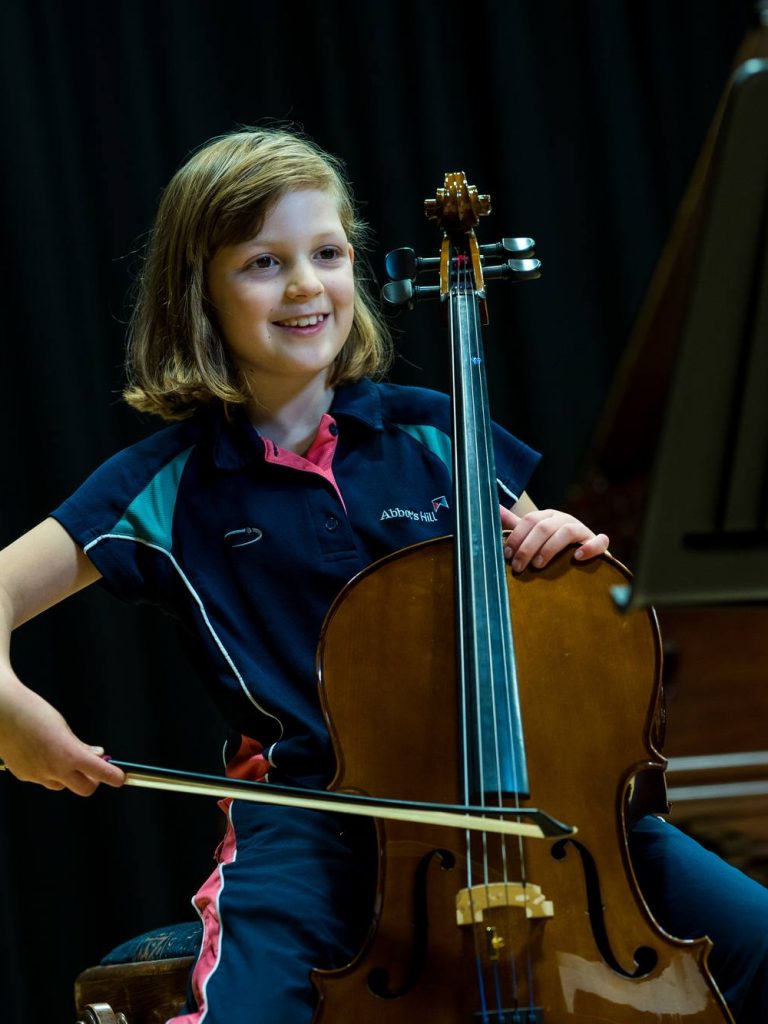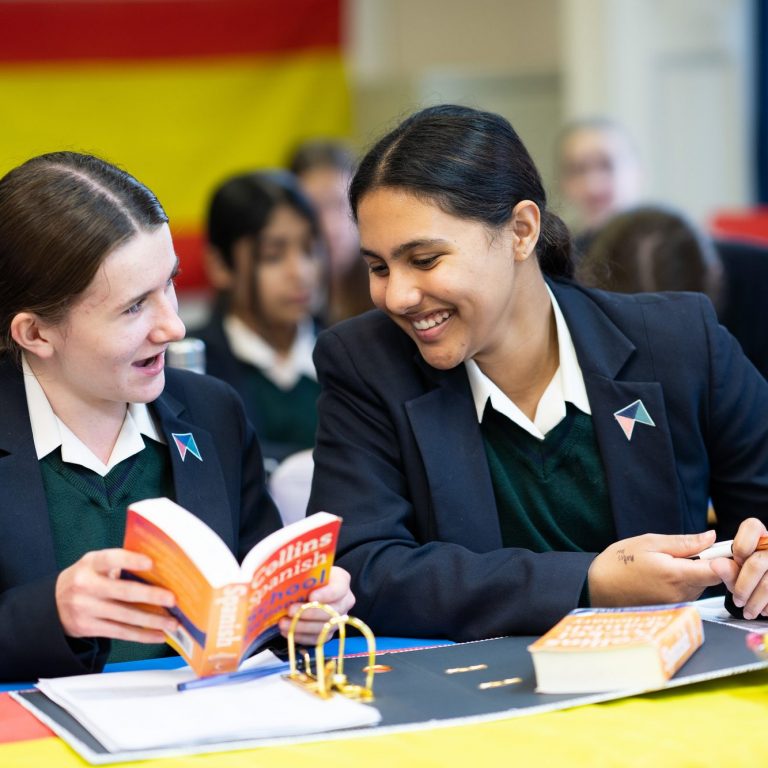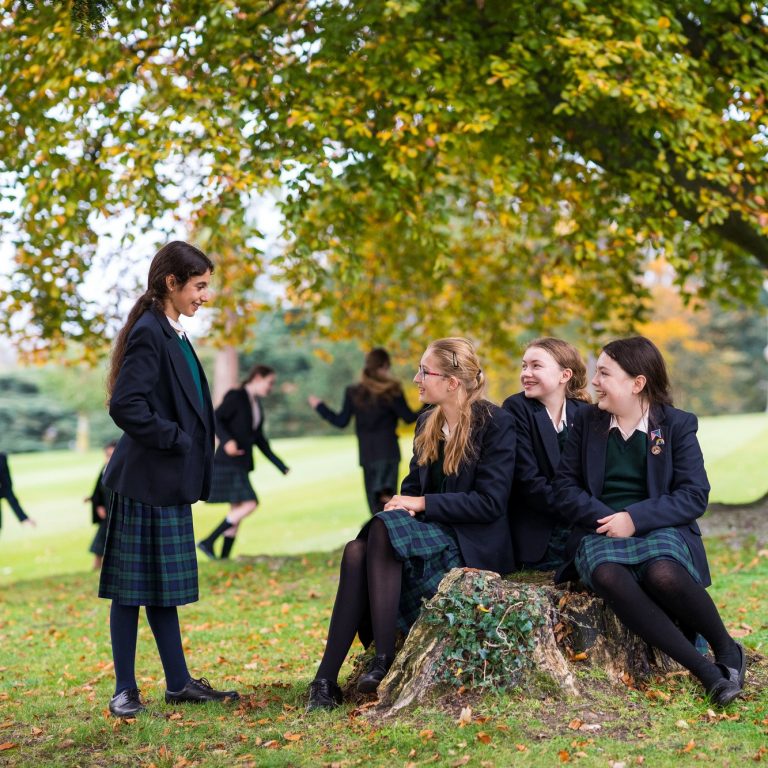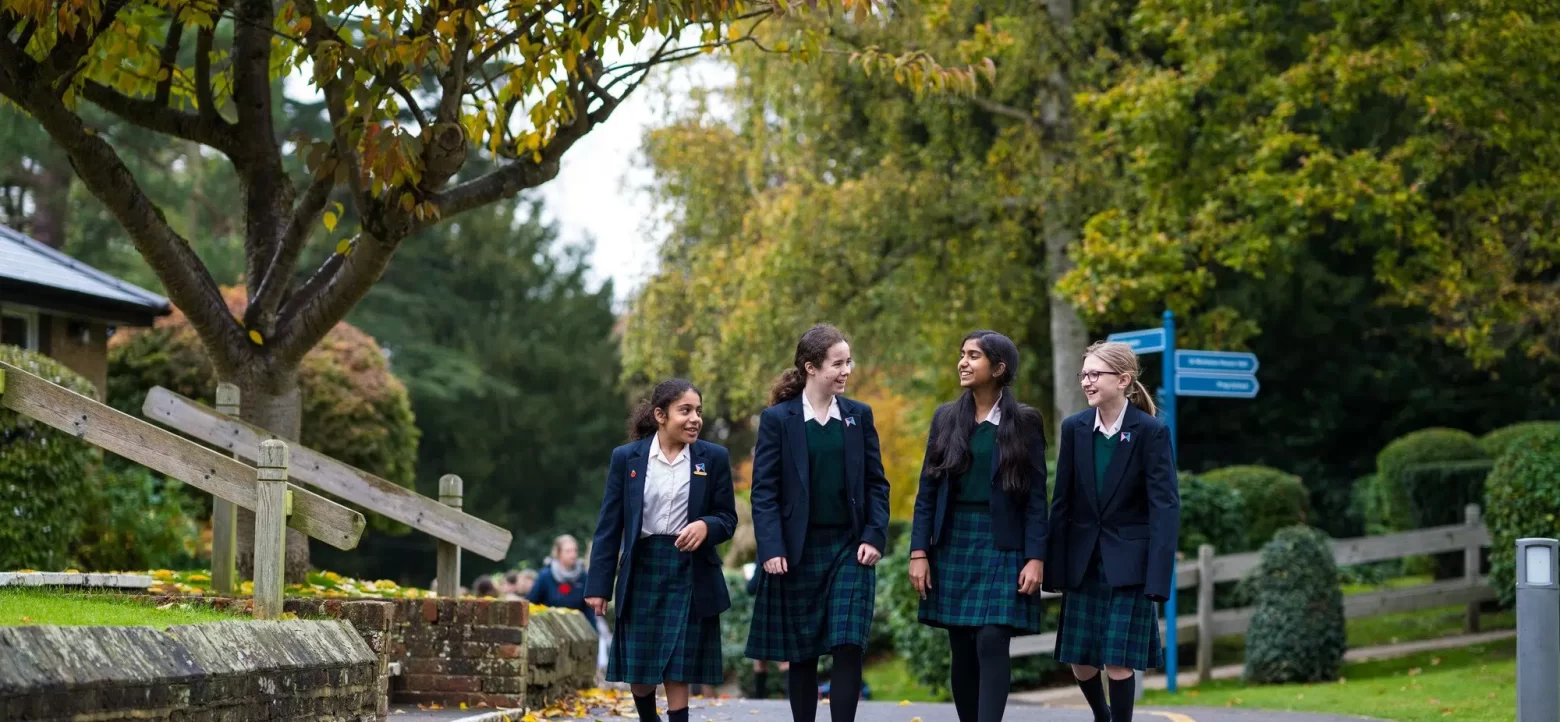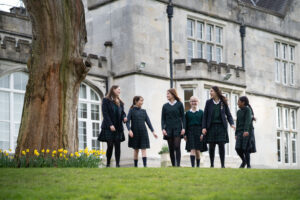The English department aims to inspire a love of language and literature, providing a broad, balanced and exciting curriculum for pupils throughout their Senior School years. We see English as central to all experiences, believing that it empowers the individual. Our mission is to help pupils to become independent thinkers and to find their individual voice. Skills in written and verbal communication are developed from Year 7 until the end of the GCSE course, such that pupils learn to express themselves in the most compelling ways possible, through the power of language and delights of literature. Our rich and varied curriculum caters for all, fostering the creativity, clarity of communication and independent thinking skills needed to succeed across all subject disciplines.
Nurturing talent for analysing texts and writing creatively is a core aim in the English department. All Key Stage 3 classes study a contemporary novel in the Autumn term. The class teacher selects a novel which is lively and interesting to read and also offers a range of topics for discussion, debate and creative activities. Examples in Year 7 and 8 are Room 13 by Robert Swindells and Holes by Louis Sachar. In Year 9 girls read challenging texts such as, The Woman in Black, by Susan Hill and An Inspector Calls by J.B. Priestley.
Pre 20th century prose and poetry is a crucial aspect of every year group’s study. In Year 7 we study Victorian literature where our students study extracts from Oliver Twist and Great Expectations by Charles Dickens focusing on the role of the child narrator. This study is enriched by our Year 7 trip to the Charles Dickens Museum in Bloomsbury, London. To further add to our study of literary heritage texts, Year 8 students read a range of Sherlock Holmes’ detective stories in the summer term which involves the study of crime fiction genre focusing especially on the character of the sleuth, as well as additional opportunities for creative writing. In the final term of Year 9, students will embark upon a study of their GCSE Modern Drama text, An Inspector Calls, providing a timely transition to the GCSE Literature course.
Poetry is also studied throughout Years 7, 8 and 9. For Year 7 we have a unit which explores ballad poems which doubles up with our study of English Literary heritage, in which our students read, The Lady of Shalott. In Year 8 the poetry unit doubles with our study of Romeo and Juliet where students analyse a previously unseen extract. In this study, our students also embark upon a research project investigating the life and times of William Shakespeare. This enrichment project culminates in a theatre trip to The Globe Theatre or Stratford-Upon-Avon. In Year 9, the poetry unit is cross-curricular. This War Poetry unit focus is on Wilfred Owen and Siegfried Sassoon’s reality of war poetry and coincides with the History Department’s teaching of World War I and an annual trip to the battlefields in Ypres.
The English department also offers a broad and exciting co-curricular programme. Regular theatre trips and workshops aim to enrich and expand pupils’ appreciation and passion for literature, together with a variety of clubs including a current affairs group, creative writing and poetry and weekly book discussion groups, and the School Magazine (The Chronicle) editorial team.
